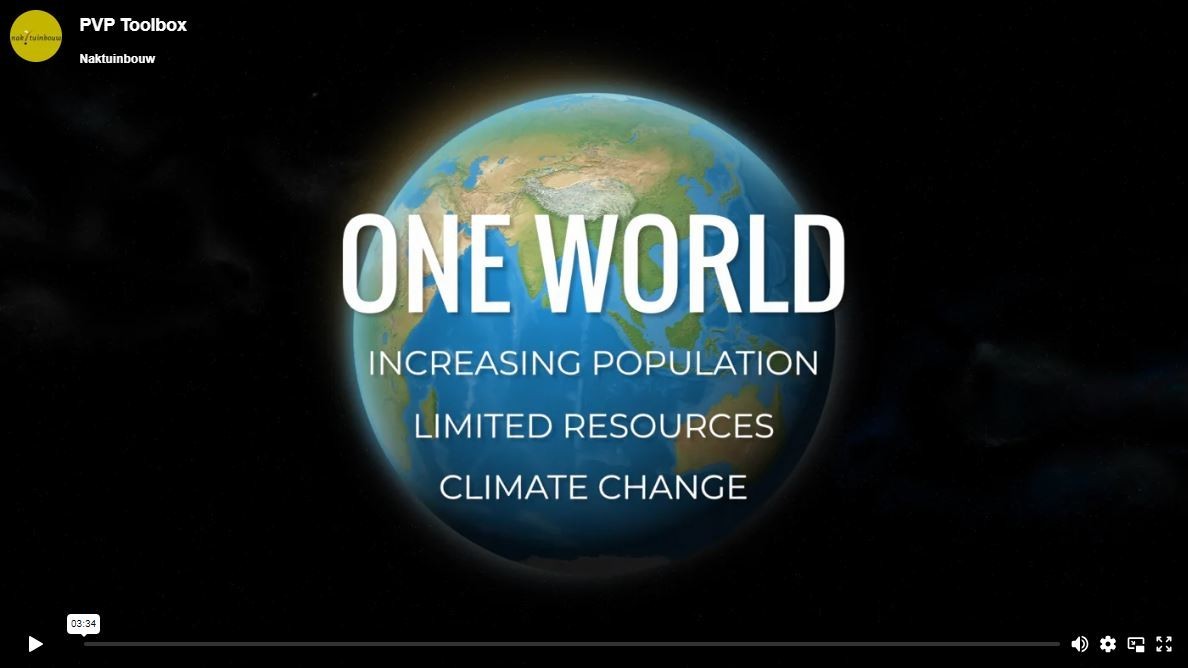PVP Development Program - PVP Toolbox
The PVP Development Program is funded by the Dutch Ministry of Agriculture, Fisheries, Food Security and Nature since 2016. The program is proved to be a successful tool for Embassies to improve market access for Dutch plant propagating material as well as a tool for professionalizing local PVP systems. The current health situation is causing enormous changes to economic, logistics and education worldwide. However resilient food security has become now more important than ever. Good legislation and procedures with seeds and plant varieties have become even more important. The PVP Development Program helps to identify how legislation and procedures can be improved in third countries.
Procedure
"Good varieties to feed the world population"
The Netherlands is world leader in Plant Breeders' Rights and is active in sharing knowledge with third countries. A good example is the annual Plant Breeders' Rights Training Course, which is provided in collaboration with Wageningen University & Research. This open attitude is based on the idea that the world will benefit from the availability of good varieties. Feeding the growing world population in a responsible and sustainable way is the main goal of improved varieties. This applies not only for food crops, the basis of food security of a country, but also ornamental varieties contribute to the economic development of the country and therefore to quality of life of its inhabitants.
Only an active breeding sector can meet this need for better varieties. A Plant Breeders’ Right system according to the UPOV model allows companies and institutions to obtain sufficient revenue for their breeding work and stimulate them to continue breeding new and better varieties.
A harmonised system is key
An (international) harmonised system for the registration and the protection of new varieties of plants is important for food security and for companies who work in the breeding of plant varieties. This is the focus of the efforts of the Netherlands’ when we share Dutch knowledge on Plant Breeders’ Rights systems with other countries.
Tools
In the PVP Development Program, the Netherlands provides a structured response to the requirement to share knowledge in the field of Plant Breeders’ Rights systems around the world.
The road is now open for a fast, specific and continuing response to requests from third countries. Together with Dutch experts they can work to develop and implement Plant Breeders’ Rights systems or improve existing procedures. Naktuinbouw has been tasked with the coordination and a large part of the implementation of the activities. Of course we are accountable to the Ministry on this matter. We work together with the Board for Plant Varieties, the Ministry and other experts and/or sector organisations. International cooperation may also be possible by involving CPVO/UPOV or fellow examination offices.
There is a large range of tools in the program available, such as:
Policy elements:
- Discussion principles on a government level
- Awareness missions in the Netherlands for groups of decision-makers
- help in the establishment of an Office for Plant Breeders’ Right in a country
- advise on organisational and administrative matters
Technical elements:
- Assisting in the drafting of Test Guidelines
- DUS (Distinctness, Uniformity, Stability) Training in specific crops
- Internships at Naktuinbouw
- Local experts participating in the PVP training course in Wageningen
- Plant Breeders' Rights Training Course Wageningen
- tailor-made trainings in the country
- Benchmark DUS testing
- Naktuinbouw DUS Helpdesk
Elements related to society:
- Awareness programs for farmers and traders
- Consequences of the introduction of PVP in a country on the seed and plant-related infrastructure of a country
- Workshop Enforcement
Criteria
- The activity should contribute to the creation, maintenance and/or improvement of a PVP system in a country or region
- The activity should contribute to international trade in propagated material, food security and/or contribute to agricultural and rural development
- The PVP system concerned should have the UPOV system as its basis
- The activity should be initiated and/or explicitly supported by the local government
- If possible agreements will be signed with the relevant local parties in order to establish a continuous commitment
- Local parties shall contribute to the activity (financially or in-kind)
- Activities will be funded on a cost price basis, against a pre-agreed tariff
- External expertise can be included in the projects, also on a cost-price basis
- The urgency of a problem or situation
- Absence of duplication with other initiatives
- The infrastructure in the country or region concerned should allow the results of the project to be sustained after its completion
- In principle the language in projects is English. French and Spanish are also possible to a lesser extent.
- The outcomes of the activity should be easy to monitor and assess
PVP Toolbox Film

How does it work?
- Dutch Agricultural attachés, UPOV, CPVO, countries and companies are invited to propose activities by filling out the form Template PVP Toolbox and sending their application by email.
- Naktuinbouw will evaluate the proposal and estimate a budget and the impact of the activity/activities.
- All the received proposals will be sent to the Advisory group. The Advisory group will make a priority list of activities. This priority will be evaluated by the Steering committee and they will take the final decision.
- Naktuinbouw will make a work plan for the year and this will be proposed for approval to the Dutch Ministry of Agriculture, Nature and Food quality. Once the work plan is approved Naktuinbouw will perform, monitor and evaluate all the activities. Once the activities are finalised Naktuinbouw will write a final report of each activity.
- At the end of the year a final financial report will be written and sent to the Ministry.
